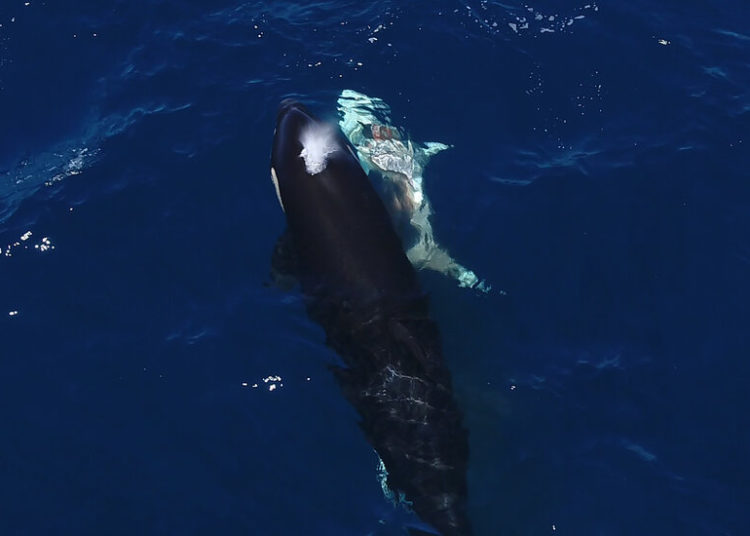On Feb. 24, 2022, as Russia invaded Ukraine and Moscow turned overnight into a pariah city, Emmanuel Carrère, one of France’s most acclaimed nonfiction writers, boarded a plane bound for the Russian capital.
His agent had warned him: You don’t fly to a country on the day it invades its neighbor. But Mr. Carrère had a professional commitment there and, more important, he needed to grasp what had become of the country he had long loved, and which had inspired some of his best sellers.
Mr. Carrère spent 10 days in Moscow, long enough to watch a world collapse around him. New laws punished anyone who dared call the war a war, and his friends scrambled to flee.
Perhaps most disquieting for a man whose passion for Russia once had led him to spend weeks in a backwater 440 miles east of Moscow — an experience he recounted in “My Life as a Russian Novel” — was realizing how many Russians either backed the war or simply looked away.
“Something inside me was shattered, and still is, and my love for Russia has taken a serious blow,” Mr. Carrère said in a recent interview in his Paris loft, its all-white walls lined with rows of books. He noted that all that had once drawn him to Russia — its rich literature, tragic history and larger-than-life personalities — now seemed to have culminated in a brutal war.
“There’s a kind of dizzying depreciation of Russian values,” he said.
This reckoning pulses through his latest book, “Kolkhoze,” released in France in August and slated for U.S. publication next year. A best seller in France and one of four finalists for this year’s Goncourt Prize, the country’s most prestigious literary honor, it is a kind of autobiography that explores Mr. Carrère’s Russian roots and his relationship with his mother, who during her lifetime was France’s leading historian of Russia.
The new book helps readers understand his self-professed “deep love” for Russia before the war caused him to question that affection and the forces that shaped it.
In search of answers, Mr. Carrère traveled to wartime Ukraine to hear from those resisting Moscow, and visited the Caucasus nation of Georgia, which Russia invaded in 2008. Despite having a Georgian grandfather and a cousin who until recently served as the country’s president, he had never visited Georgia before. His love for Russia had always taken precedence.
His introspective writing about Russia also has held up a mirror to many others in France, beginning with his mother, Hélène Carrère d’Encausse. Her complacency toward the Kremlin, which Mr. Carrère critiques sharply in the book, shows a distinctly French fascination with Russia, shaped by a shared history of revolution, empire and cultural masterpieces.
“If we’re so interested in his story, it’s because it reflects back on ourselves,” said Léna Mauger, the editor of the French magazine Kometa, which published several of Mr. Carrère’s reports from Ukraine and Georgia that fed into his latest book.
Mr. Carrère, 67, began his career as a novelist, but he has devoted the past 25 years to mastering the nonfiction genre.
His subjects include a man who deceived his family for 18 years before killing them all, his embrace of meditation and the trial of those responsible for the 2015 terrorist attacks in Paris.
Yet Russia has been a constant in his work, the focus of two books and numerous magazine articles, because, as he writes in the opening pages of his latest book, “Russia, for better or for worse, is a family affair.”
His mother, raised by a Russian-Prussian aristocrat mother and a Georgian immigrant father who spoke Russian to her, was a prolific historian of Russia and a fixture on television debates about the Kremlin. She passed that passion on to her son, taking him on a research trip to Moscow and handing him to read, at just 13, “The Idiot,” Dostoyevsky’s 650-page dive into the Russian soul.
That education gave Mr. Carrère “a feeling that there’s a life that’s more intense” in Russia, he said.
He began traveling there regularly in the late 2000s, and, drawn by quixotic characters, wrote about a World War II Hungarian soldier who was captured by Soviet forces and discovered a half-century later in a remote Russian mental hospital. Then, in 2011, he turned his sights to Eduard Limonov, a Russian writer turned Soviet dissident turned ultraright-wing politician.
By then, Vladimir V. Putin was consolidating his autocratic rule and crafting his imperialist ambitions, lashing out at NATO’s expansion in 2007 and snatching up a fifth of Georgia’s territory the following year. Mr. Carrère, like so many others, paid little attention, seeing in Mr. Putin a “mafioso” who could still be reasoned with.
His mother, who died in 2023, was particularly blind, he writes in “Kolkhoze”: “Her love for Russia is real, visceral. The tragedy is that it morphed into indulgence for Putin, and for the past 20 years she continuously carried the Kremlin’s message” to successive French presidents, telling them that “Russia is a great country that cannot be judged by our standards and that Putin is a man of peace — provided he is not humiliated, of course.”
“Looking back, one realizes we should have understood much sooner,” Mr. Carrère writes.
But he didn’t, not until Russia’s full-scale invasion of Ukraine.
On the day it began, Mr. Carrère was set to fly to Moscow to participate in the making of a film adaptation of his Limonov biography, directed by Kirill Serebrennikov, a Russian filmmaker who later fled Kremlin repression. After some hesitation, curiosity won out: he boarded the plane.
In Moscow, he saw “this Russia at war take shape,” he said, as belligerent rhetoric drowned out everything else and Kremlin propaganda “was calmly absorbed by quite a number of people.”
To try to make sense of it all, Mr. Carrère set out to look at Russia through the experiences of those under its fire. Mr. Carrère first traveled to Georgia, where he caught up with his cousin Salomé Zourabichvili, the country’s former president, who had opposed its gradual takeover by pro-Russian forces.
Georgia is where he began seeing Russia through the prism of colonialism, as a country that had long dominated its smaller neighbors, first through empire, then the Soviet Union. Now it was seeking to reclaim that domination.
“War made me realize it,” he said. “I honestly don’t think I would ever have thought of Georgia as a colonized country before.”
He then visited Ukraine, joining the Ukrainian philosopher Volodymyr Yermolenko on trips to the frontline cities of Kherson and Kharkiv in late 2023. Along the way, they held long conversations about Ukraine’s efforts to purge the country of Russian culture and break free from Moscow’s influence.
The experience unsettled Mr. Carrère. Yet it helped him “see things through the eyes” of Ukrainians, he said, and grasp why Dostoyevsky, with his anti-Western, nationalist bent, is reviled there. Still, he hopes that when the war ends, the reckoning will be more measured.
Mr. Yermolenko said the trip was important to show Mr. Carrère “what the Russian world actually means, what it really brings” behind the “facade of Russian culture.”
He took Mr. Carrère to Kherson, so he could see streets emptied by relentless shelling, and to Kharkiv, where he spent an evening in an underground basement, sheltering from Russian attacks, at an event where people shared their poetry.
Did these experiences make him rethink his earlier writings on Russia? He hesitated. Had he known then what he does now, he said, he might have written a different portrait of Mr. Limonov, who grew up in Kharkiv under the Soviet Union yet scorned Ukraine as a nation.
“It’s a story of deconstruction,” Ms. Mauger, the magazine editor, said of Mr. Carrère. “He was shaped by something, and now he’s deconstructing it.”
Since 2022, Mr. Carrère has traveled four times to Georgia and as many to Ukraine. Will he keep writing about Russia? He’s not sure. He said he wanted to find other roots.
“Because a void has opened up,” he wrote in Kometa in late 2023. “Because I loved Russia and, however shocking it may be to say this about an entire people, one can still love some Russians, but one can no longer love Russia.”
Constant Méheut reports on the war in Ukraine, including battlefield developments, attacks on civilian centers and how the war is affecting its people.
The post A Celebrated French Writer Loved Russia. War Forced a Reckoning. appeared first on New York Times.




